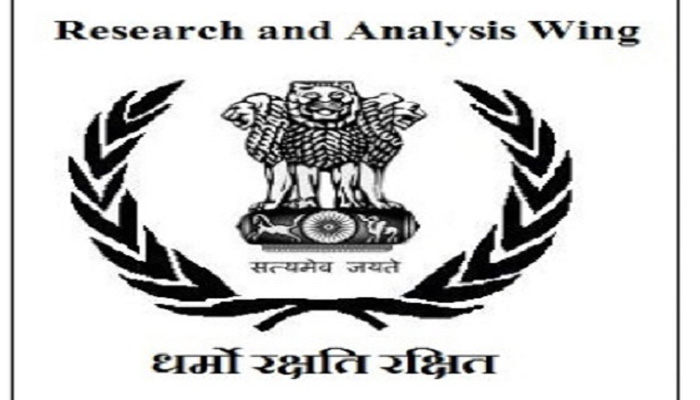We envisage RAW with a lot of highs and lows pertaining to its cinematic portrayal. A gun trotting classy dapper in the middle of a desert fighting terrorists to someone camouflaging into mundaneness as a common man melting in the street crowds. RAW is somewhere pictured on the lines of Israeli secret service and the legendary MOSSAD, however somewhere the genesis of its full throttled potential has never been realised in the realms of foreign policy engagement. Its exploits are quite well versed as in 1984 RAW gave that precious timely tip that pushed the Indian army to launch operation Meghdoot which forced Pakistani army to retreat from its misadventure in Siachen. As an instrument for establishing external sway and hegemony RAW has never met its full exhaustive potential as its legendary Israeli counterpart.
Any external agency works on the premise of robustness embedded in its political will emanating from a resounding and decisive mandate. Majorly such agencies exceptionally function into its profound effectiveness with respect to covertness of its operations and a muscularly secure government of the day. Another aspect which comes into play happens to be exploiting any apparent ensuing weakness of the enemy country to provide a leverage for their own activities on our land. As a matter of fact, Jammu and Kashmir which has been raked up by Islamabad has gone on to become a centre point of its policies that has helped her garner international attention. Support to insurgency and raking the alaap of freedom in the UN has been Pakistanis default knee jerk strategies to proxy box Indian interests. Naturally the best punch New Delhi can effectively muster is to counter balance their meddling in our internal affairs by strategizing Balochistan to pay back in their own coin. Even if RAW and the Govt of India has been supportive to Baloch interests, perhaps more seems to be done in order to pile more pressure on Islamabad which can help derail their momentum of calling rabidly on Kashmir.
From the rampant of the Red fort this independence day, PM Modi in his annual speech mentioned Gilgit, POK and Balochistan which drew sharp reactions from across the border. Although pushing for these issues at public platforms and forums have their necessary desired cascading diplomatic ramifications, however the need to back it up with a contingency plan which can derive tangible benefits too is necessary as a policy. The deadly combination of diplomatic escalation rooted on covert black ops will certainly help nourish the cause of an independent Balochistan. After PM’s statement, Baloch freedom fighters and separatists welcomed the move citing gross human rights violations and exploitation under the backdrop of Chinese Pak economic corridor which is aimed at furthering Chinese interests in the region with its expansionist outlook and subtly making Islamabad its colony. The immediate fall out of the same was Brahamdagh Bugti of the Balochistan Republican party telling the Indian media of seeking a political asylum in New Delhi.
At the backdrop of this geo political game of chess, special directors of RAW AK Dhasmana has been appointed to be the next at the helms of the country’s external agency. The 1981 MP cadre is known to be an expert in Balochistan imbibed with a rich overhaul experience in Pakistan and Kabul and counter terrorism.
Majorly he has also worked at the level of SAARC and has expertise in the strategies and policies pertaining to the South Asian region. Ever since Modi administration has captured power, his pointed right hand man Ajit Doval has spearheaded national security matters quite effectively. AK Dhasmana enjoys his confidence and both share same vision in lieu with the nations strategic interests. Officials close to the new chief elect has reportedly highlighted his comprehensive web of asset support in these areas and is known to be earnestly hawkish in his goals to achieve being a ferocious go getter. Sources have alleged him as one of the factors that stalled the Gwadar port in Baloch which happens to be the centre piece of CPEC corridor and his same approach can effect a tangible blow to both Pak Chinese regional interests. With the duo enjoying the trust of the PM, India can explore the above mentioned flurry of covert activities which includes arming the fighters there, providing political patronage in that context and overtly streamlining it with its push for Baloch independence policy based on the seemingly entrenched discontent in the region. There are three aspects to a formidable challenge in directing such policy initiatives. A daring spymaster at the top spreading its wings over knowledge of the region and intelligence niched by a political foundation which means business at all costs and is not willing to compromise in lieu with political compulsions and finally the opportunity to exploit that said domestic enfeeblement which may fluctuate depending on the situation in their country.
Balochistan is compared to Bangladesh over multi factorial reasons. Even if they are cousins in principle, the scale or magnitude of the inherent problem of sorts is still lacking a comparison. Perhaps appointment of this man may kick start the process and hence its imperative to wait and watch over these developments.
